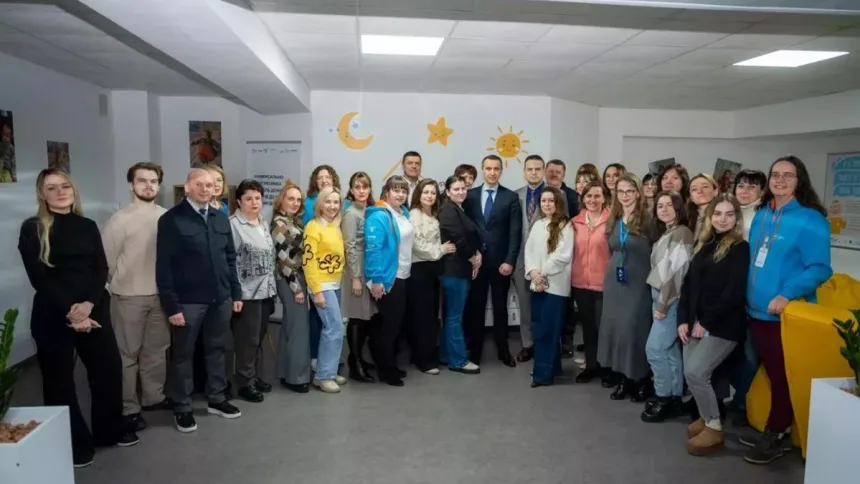16 January 2025 – The approval of updated Ministry of Health procedures on home visiting, as a core part of the healthcare system, is set to boost comprehensive medical and social care for children under four years so every child gets the best start in life.
Through the ‘Home Visiting Programme’, families receive support from healthcare professionals on immunization, breastfeeding, nutrition, positive parenting and early identification of developmental delays. The adoption of the new procedure follows the UNICEF supported home visiting pilot programme in 2023-2024 that resulted in a positive impact on the health and social wellbeing of children and families covered.
“The first years of life lay the foundation for optimal growth and lifelong well-being, which is why home visits are so important for children and their caregivers,” said Munir Mammadzade, UNICEF Representative to Ukraine. “They are not just medical check-ups but provide tailored and comprehensive support, so caregivers are empowered to create a safe and nurturing environment for their children. This is even more essential for families living through the extreme stress of wartime,” added Mammadzade.
“Data indicates that Ukraine’s birth rate has declined by almost 40% over the past decade. The full-scale war has deepened the demographic crisis,” said the Minister of Health Viktor Liashko speaking at the opening of the training and resource centre at the Shupyk National Healthсare University of Ukraine.
Also Read : HMC launches campaign highlighting specialist care excellence in Qatar
“Access to quality healthcare services is a critical component of Ukraine’s demographic development strategy through 2040, which was approved by the government last year. During the early years of a child’s life, it is vital to ensure access to necessary medical care and equip parents with comprehensive information about their child’s health, nutrition, hygiene, vaccinations, and accident prevention. To address this, the Ministry of Health of Ukraine has updated the procedures and frequency of preventive healthcare check-ups for children, including provisions for home visits by family nurses,” added Mr. Liashko.
The home visiting format includes four home visits by nurses to families with children under four years, each lasting 60 to 90 minutes, as well as six consultations at healthcare facilities following a doctor’s consultation.
To ensure healthcare professionals are equipped to deliver high-quality services to families with children, UNICEF and partners established 12 training and resource centres in 2024 across seven regions of Ukraine: Volyn, Lviv, Zakarpattia, Chernihiv, Kyiv, Odesa, and Dnipro oblasts. In 2025 an additional ten centres are planned to be established.
Through the pilot programme, nurses have been providing home visits across fifteen oblasts in frontline and other areas, integrating a humanitarian, recovery and development response. Last year, over 40,000 children, their parents, and caregivers benefited from home visits conducted by more than 1,100 trained health workers. This year the programme will scale-up to all regions of Ukraine.
The establishment of training and resource centres, along with the implementation of the ‘Home Visiting Programme’, is supported by the governments of Spain and Japan, the German Federal Ministry for Economic Cooperation and Development (BMZ) through KFW, and Citi Bank. The setup and maintenance of training and resource centres are carried out by UNICEF’s implementing partner, NGO ‘In Touch Ukraine Foundation’.



















